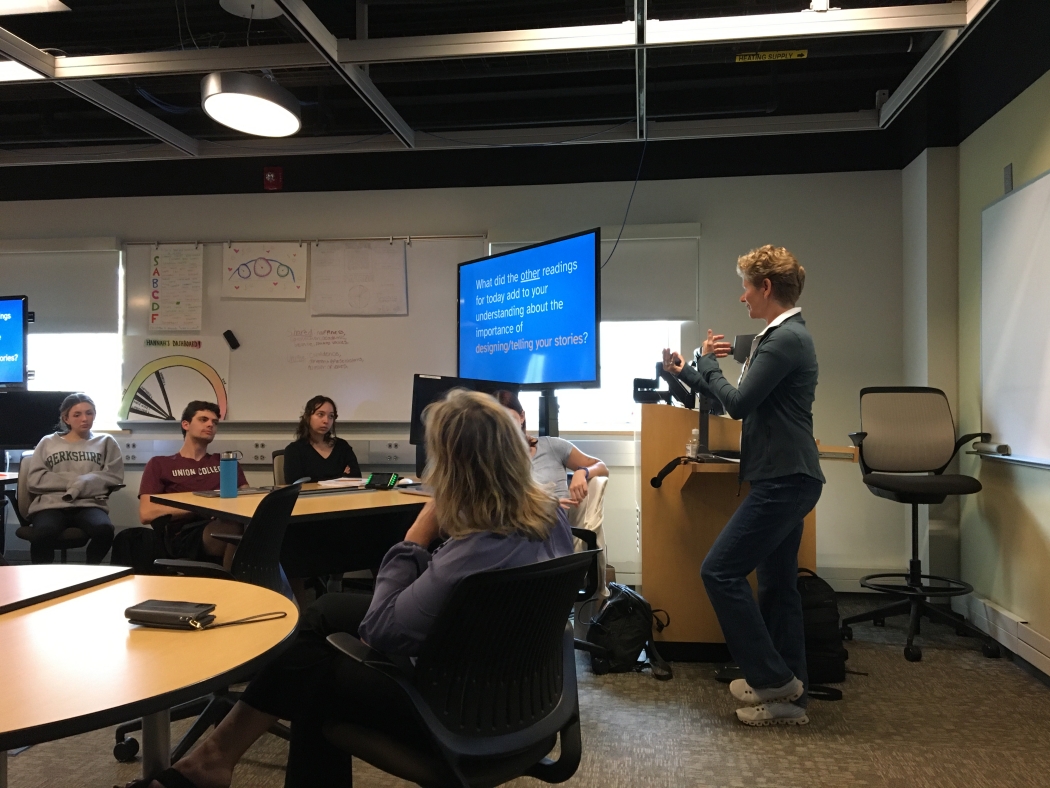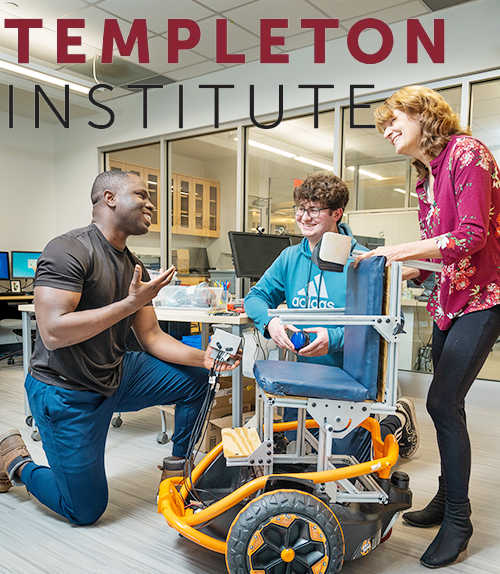AY24-25 Templeton Institute Courses
Humanity Centered Design (Fall 2024)
The goal of the course is to offer a locally-focused, humanity-centered general education design course through a Justice, Equity, Identity, Difference (JEID) perspective, which will enable students to broaden their understanding of design from multiple disciplines and diverse perspectives with a focus on the lives, experiences, and stories of people, communities, and ecosystems. In this class, students are encouraged to learn principles of humanity-centered design and recognize their place within complex systems as well as their potential and agency as co-designers of their own interconnected lives. This course was team-taught by Dr. Carolyn Rodak (Civil and Environmental Engineering), Dr. Christine Henseler (Spanish), and Dr. Erika Nelson (German). The course featured guest speakers, extensive classroom discussions, and site visits.
Data Sonification (Spring 2025)
This course is an introduction into the field of data sonification, a creative and innovative approach to understanding and communicating by translating data into sound.
Data sonification goes beyond traditional data visualization methods, offering unique insights and perspectives on datasets from a variety of sources. Students will explore a broad spectrum of interdisciplinary applications, ranging from the practical (e.g., Geiger counters for radiation detection; machines monitoring vital signs for healthcare patients) to the technical (e.g., scientific research in fields like electrical engineering, astronomy, and physics) to the creative (e.g., musicians creating new music or sound art from patterns and structures found in data). This course will be team-taught by Dr. Luke Dosiek (Electrical Engineering) and Dr. Chris Chandler (Music).


